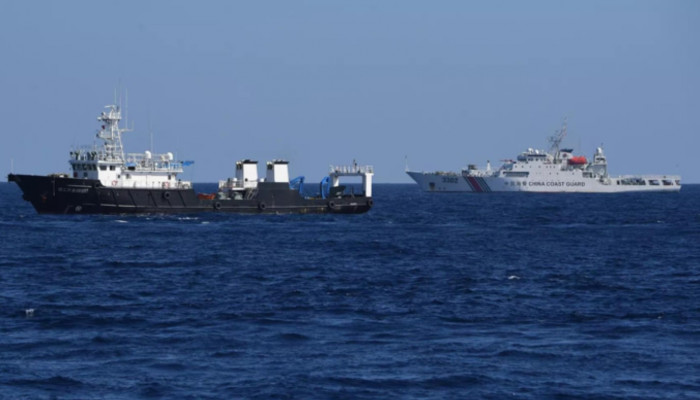Chinese fishing vessels allegedly discharging cyanide into contested waters
- In Reports
- 04:46 PM, Feb 21, 2024
- Myind Staff
The Bureau of Fisheries and Aquatic Resources in the Philippines has accused Chinese fishing fleets of using cyanide to damage Scarborough Shoal, a marine-rich atoll caught in territorial disputes between Manila and Beijing.
As per the report from The Philippine Star, translated from Filipino, Nazario Briguera, representing the Bureau of Fisheries and Aquatic Resources, stated that Chinese fishermen use cyanide in their fishing practices.
Cyanide fishing, a method involving the dispersal of this highly toxic substance near coral reefs or fishing regions to stun or eliminate fish for easier collection, is globally condemned due to its indiscriminate impact on various marine life, significant harm to water ecosystems, and potential health risks for consumers and handlers of the affected fish.
According to The Philippine Star, Briguera further asserted that the Chinese fishers' use of cyanide aims not only at capturing fish but also at deliberately destroying Bajo de Masinloc, also known as Scarborough Shoal, to block Filipino fishing vessels from the area.
According to the spokesperson, such activities could result in approximately $17,850,000 worth of ecological damage. Although the bureau has yet to conduct a comprehensive study to determine the full extent of the damage, it expresses serious concerns over the situation.
While cyanide fishing among Philippine fishermen has declined since the 1960s, a recent study by the Coastal Conservation and Education Foundation in Cebu found that the method is still sporadically used in the South China Sea.
Responding to these accusations, the Global Times, a Chinese state-affiliated tabloid, accused the Philippines of baselessly maligning China with their cyanide allegations, aligning with Beijing's narrative.
Scarborough Shoal remains a significant point of contention in the territorial disputes of the South China Sea, with claims made by China, Taiwan, and the Philippines. Despite a ruling in 2016 by an international tribunal in The Hague that favored the Philippines, tensions over the shoal persist.
Image source: Times of India







Comments